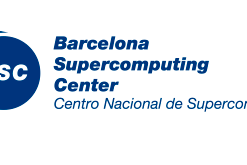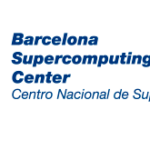Context And Mission
The current needs for decarbonization have placed hydrogen and hydrogen-enriched fuels as an efficient solution for the transition to a clean, low-carbon energy system. Nonetheless, reducing the emissions and the carbon dependency to the levels of the EU targets brings new challenges to the energy-intensive industrial processes like steel manufacturing or power generation. The development of power-to-X (P2X) technologies can be used to produce hydrogen from renewable electricity referred as “green hydrogen” and supply the fuel demands of such processes reducing the carbon-foot print and the fossil fuel dependency of the process. Hydrogen-based technologies are identified to be key for the energy transition and demands digital tools and advanced software to accelerate the deployment of these technologies to the market. Within this context, the candidate will develop a research activity comprising the development of infrastructure for the generation of Digital Twins based on process data using Artificial Intelligence (AI) and physics-based reduced-order models These activities are conducted in the context of two EU projects aligned with the energy transition.
On the one hand, green hydrogen is generated from water and renewable electricity in an electrolyser. This renewable hydrogen can be stored and distributed for later use in highly efficient electrochemical systems such as fuel cells. The most efficient electrolyzers and fuel cells are based on Solid Oxide Cells (SOCs) operating at high temperatures. These novel technologies for electrolysis Solid Oxide Electrolysis (SOEs) involve multiple physical and chemical phenomena ranging from thermo-fluidics occurring at the cm-scale to electrochemistry taking place at the nanoscale. This multi-physics multi-scale complexity makes such devices extremely challenging from the simulation point of view while, at the same time, makes simulation outputs highly valuable to predict and design real operating systems. The Digital Twin will be generated using not only data from the project, but also from other databases.
On the other hand, the metallurgical sector, with a high dependency on fossil fuels, could strongly benefit from clean combustion technologies and the use of cleaner and more sustainable fuels. Hydrogen and hydrogen-enriched fuels have significant potential to enable the transition to a clean, low-carbon energy system. Nonetheless, reducing the emissions to the levels of the EU targets brings new challenges to the metallurgical sector, responsible for a large portion of the pollutant emissions produced in the industrial sector and with a high dependency on fossil fuel supply. The Digital Twin will be generated using sensor data from the furnace combined with numerical data from simulations.
The applicant will join the Propulsion Technologies Group (PTG), a research group from the Computer Applications in Science and Engineering (CASE) Department at the Barcelona Supercomputing Center. As part of the PTG, the applicant will join a multidisciplinary team with background in advanced computational models for high fidelity simulation of energy conversion systems. The PTG is actively involved in several European research-oriented for which results are disseminated in highly ranked scientific journals, and conferences, and industrial projects with focus on technology transfer to industry.
Key Duties
- Developing an efficient ML-based platform for training CNN from large scale datasets.
- Developing reduced-order models for electrolizers and sub-components using data-driven methods.
- Developing reduced-order models for the full furnace and sub-components using data-driven methods.
- Developing physics-based reduced-order models from simulation data.
- Interact with the different partners of the projects to carry our collaborative research.
- Contribute to scientific publications and reporting to different National and EU projects the researcher will be involved in.
Requirements
Education
- The candidate should hold a Degree or PhD in Chemistry, Physics, Mechanical Engineering, or Data analytics.
Essential Knowledge and Professional Experience
- General knowledge on data-driven methods, python programing and Machine Learning are expected.
- Background in computational science and Artificial Intelligence
- Solid background on data-driven methods, fluid mechanics and Materials Science will be positively evaluated.
Additional Knowledge and Professional Experience
- General knowledge on computer science and programming languages such as Fortran, C, and C++ will be very well considered.
- Computational skills and parallel programming for HPC are not necessary but will be considered an asset.
- Fluency in English is essential, and Spanish is welcome.
- Basic knowledge of HPC will be appreciated.
Competences
- Strong analytical skills.
- Ability to work independently and within a team.
- Good communication and teamwork skills to work in a multidisciplinary team.
Conditions
- The position will be located at BSC within the CASE Department
- We offer a full-time contract, a good working environment, a highly stimulating environment with state-of-the-art infrastructure, flexible working hours, extensive training plan, restaurant tickets, private health insurance, support to the relocation procedures
- Duration: Open-ended contract due to technical and scientific activities linked to the project and budget duration
- Salary: we offer a competitive salary commensurate with the qualifications and experience of the candidate and according to the cost of living in Barcelona
- Starting date: 01/04/2023


